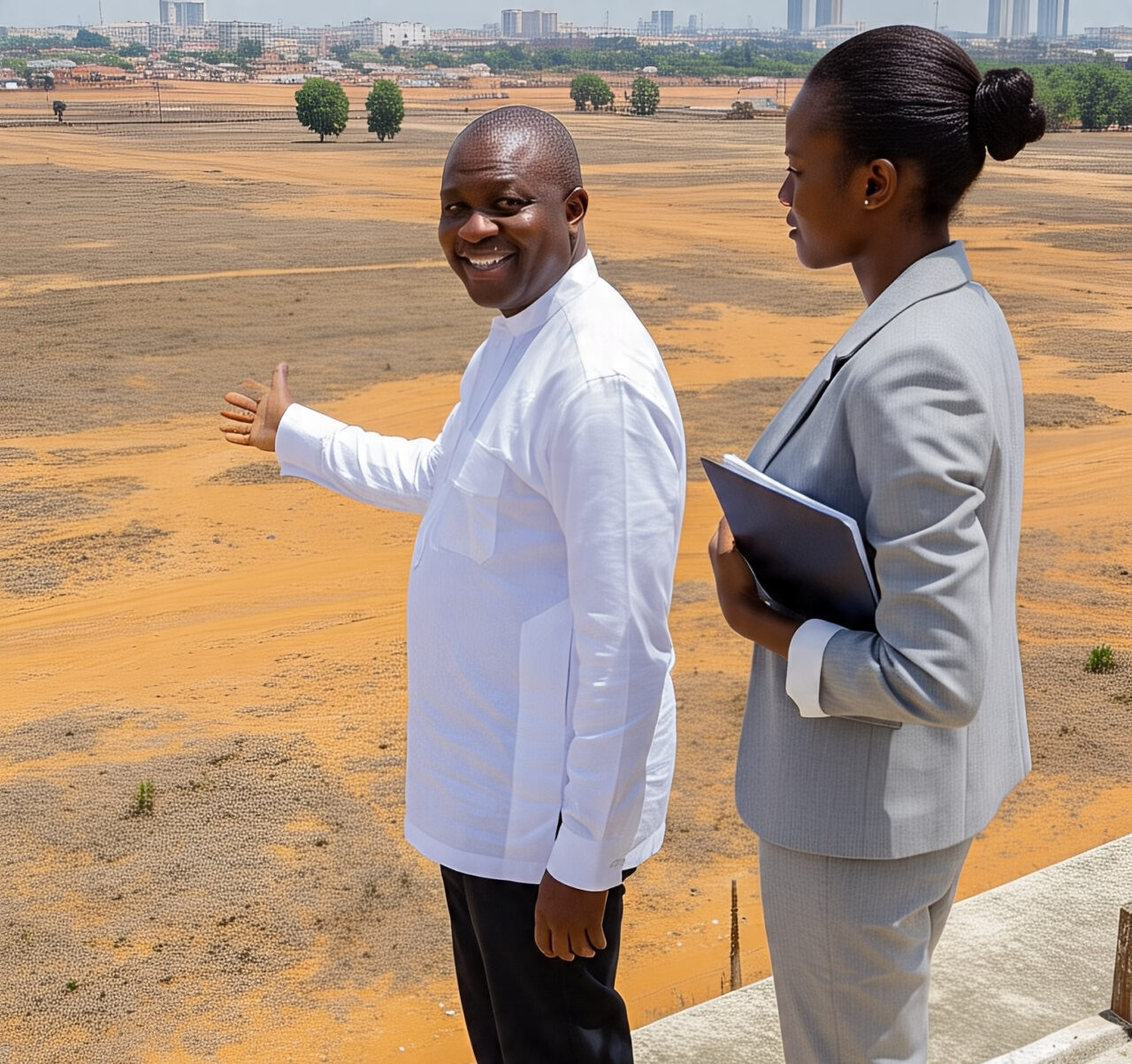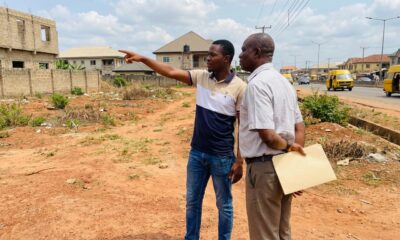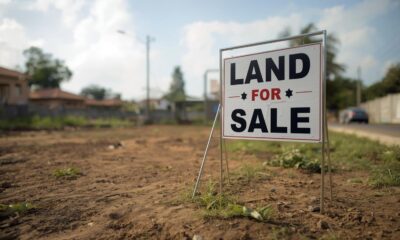Features
Dennis Isong: Red Flags You Should Observe in Real Estate

Photo credit: MetaAI
A young man had been saving for three years to buy a plot of land in Ibeju-Lekki. He found a beautiful advert on Instagram, and it sounded perfect. The marketer was smooth-talking, sent pictures and even offered a free site visit. Tunde paid the deposit, signed a document that looked official and waited to start building.
Three months later, he visited the site again, and that was when reality struck. The supposed office was gone, the phone lines no longer went through, and the land? It was never theirs to sell. That land was under government acquisition. Tunde had been scammed.
This story is not uncommon in Lagos. The rush to own land or property often blinds people from doing due diligence. But if you learn to spot certain red flags early enough, you’ll save yourself money, stress and embarrassment.
The Offer Sounds Too Good to Be True
If someone is offering land in a prime location at a ridiculously low price and everything seems so easy—no complications, no inspection fee, instant allocation—pause first. Land prices in Lagos are driven by demand, development and infrastructure. No serious company is dashing out plots in Ajah or Ikorodu like gala on the Third Mainland Bridge. Scammers often bait people with urgency and discounts. Don’t rush because of “promo ends tomorrow.” Take your time. The land will not disappear, but your money might.
No Proper Documentation or Title Clarity
In Lagos, documents like Certificate of Occupancy (C of O), Gazette, Excision, or Deed of Assignment are not just paper—they are proof of ownership. If an agent or seller tells you, “We are working on the papers” or “the land is family land, so you’re safe,” run. Any reputable land or property should have clear documentation that you can verify. And yes, verification means visiting the Lagos State Land Registry or working with a lawyer or trusted real estate consultant, not just taking their word for it.
Pressure to Pay Before Seeing the Land
This one is common, especially online. You’ll hear things like “We have only two plots left” or “Someone else is interested, so secure it now with just 500k.” Imagine sending money for land you’ve never seen or asking no questions because you’re scared someone else will buy it. Lagos real estate doesn’t work like that. If the seller insists you pay before a physical inspection or refuses to meet you at the site, consider it a big red flag.
No Physical Office or Traceable Company Identity
Any serious real estate company in Lagos must have a traceable presence: a physical office, website, working phone lines, and preferably a verifiable CAC (Corporate Affairs Commission) registration. Scammers often operate through untraceable platforms. Once you pay, they vanish. Before any transaction, check their address. Visit their office. Ask for staff names and roles. If something feels off, it probably is.
The “Omo Onile” Factor
In Lagos, omo onile refers to local land-owning families or individuals who claim ancestral ownership. They often collect money for access, fencing, or even laying foundation blocks. While some omo onile claims are legitimate, many are not. Some will sell the same land to multiple buyers. Others will disturb your building project unless you keep paying them at every stage. If you’re buying from a private family or informal seller, ask deep questions. Get the family history. Meet the actual owners, not just their “representatives.” Better still, involve a lawyer who understands how to investigate land lineage.
Inconsistent Information Between Sellers
If you’re dealing with a company or individual, and every time you ask a question, the story keeps changing, beware. Maybe today the land has excision, tomorrow it has a gazette, next week they say it’s “processing C of O.” Or maybe you ask two different staff members of the same company, and they give different answers. That inconsistency could be a sign of fraud, or at least, serious disorganisation. Either way, it’s not a good look. Real companies operate with facts, not confusion.
No Lawyer or Professional Involved
In Lagos real estate, emotions and assumptions are dangerous. Some people think they can handle everything themselves. They trust the seller too much or want to save money by avoiding legal fees. But a good lawyer or professional realtor can save you from bigger losses. Scammers know many buyers are desperate and uninformed. That’s why they use friendly language and smooth talk to build false trust. Having a professional by your side is protection.
The land you buy today is not just soil; it’s your future investment and your children’s inheritance. It deserves careful steps.
Tunde’s story ended on a sober note, but it also taught him a lifelong lesson that not everything that shines in real estate is gold. Since then, he has become more vigilant, and thankfully, with the help of a reliable consultant, he eventually got a genuine plot.

















